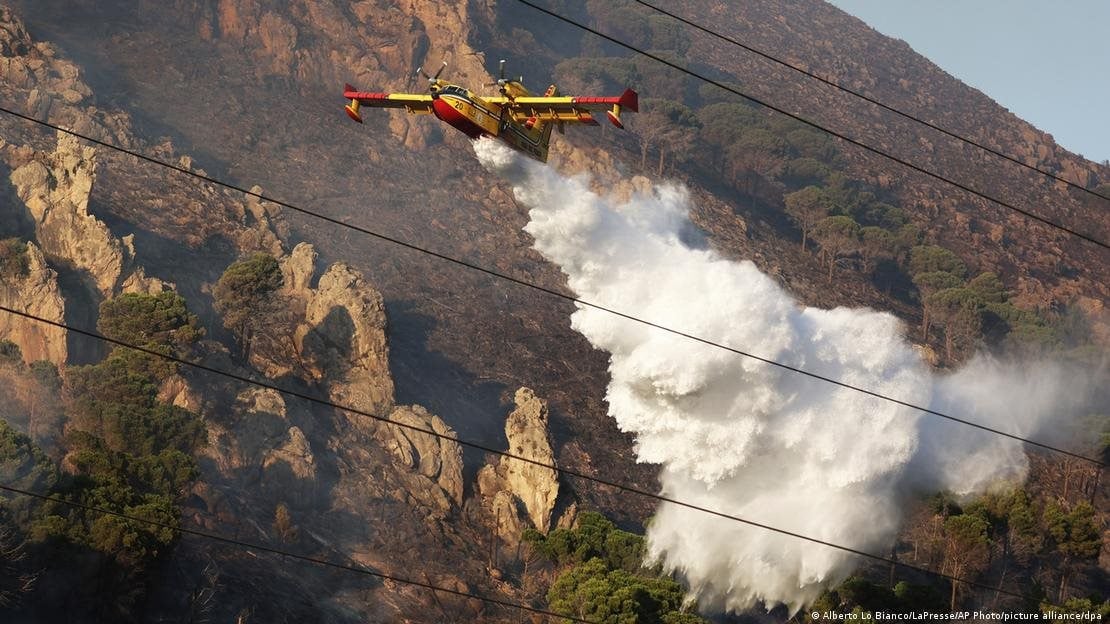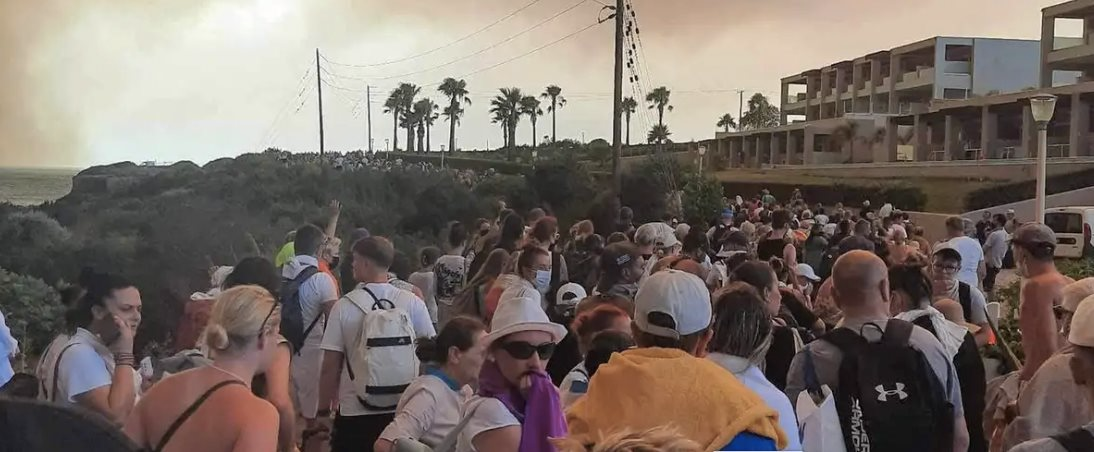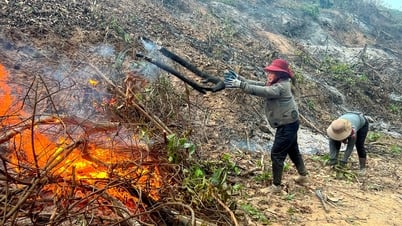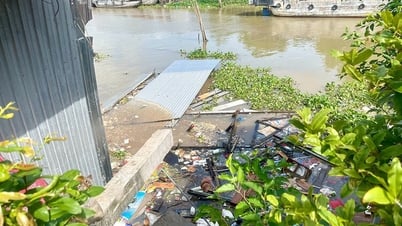Fires rage, GDP declines
Scientists predict that extreme weather events such as heat waves will become more frequent in Europe in the future. According to the World Meteorological Organization, the area around the Mediterranean Sea is warming rapidly. Dry land under the scorching sun creates conditions for fires to spread.
In April 2023, extreme temperatures were recorded in Spain and the July heatwave was recorded as the longest on record in Greece. In July alone, more than 50,000 hectares of forest were burned in the country, almost half the area of the German capital Berlin. According to data from the European Forest Fire Information System (EFFIS), in 2022, an area of around 800,000 hectares of forest in the European Union (EU), equivalent to the area of Montenegro, was destroyed by fires.

Wildfires that rage uncontrollably for days are not only devastating to nature, they are destroying livelihoods and damaging the economy . Sarah Meier, an expert in extreme weather and the economic impact of fires at the University of Birmingham, says that wherever fires rage, gross domestic product (GDP) falls. Tourism employment figures show that fewer people are employed after the fires...
Tourism is said to be as important to Greece as the auto industry is to Germany. About 20% of Greece's economic output comes from tourism. In Spain and Italy, it is 12% and 9% respectively. However, international ratings agency Moody's has warned that southern European tourist destinations could lose their appeal in the long term due to heat waves and wildfires, which could hurt the economy. The agency's projections, based on climate models, show that coastal resorts will shrink significantly under different warming scenarios, while northern countries could attract more visitors.

Although climate models predict heat, drought and fires, “tourism in the Mediterranean region will not collapse overnight,” said Harald Zeiss, director of the Institute for Tourism Research at Harz University in Germany. He said that tourist seasons may change, and in the future, tourists may prefer to vacation in the Mediterranean in spring or autumn rather than summer.
Destinations like Dubai and Las Vegas show that extreme temperatures do not stop people from venturing out to such places, said Petro Beritelli of the Centre for Tourism and Transport Research at the University of St Gallen in Switzerland.
Innovation to rescue the tourism industry
Johann Goldammer - Director of the Global Fire Monitoring Center (GFMC) in Friburg (Germany) has proposed many measures to prevent forest fires.
“Due to urbanization, there is too much abandoned land, and when climate change, combined with dry periods and heat waves, exacerbates this situation, fires are inevitable,” he said. After the devastating fires on the Greek island of Euboea in 2021, Johann Goldammer presented his proposals to the Greek government, such as the concept of sustainable land use and fire prevention measures. Instead of focusing solely on strengthening firefighting capacity, prevention should be a priority.
Portugal took specific measures after devastating wildfires in 2017, for example banning the replanting of eucalyptus trees because they are too flammable. The latest data from EFFIS shows that fires in Portugal were less severe than in Spain, Italy and Greece.
Johann Goldammer believes that tourism should be developed in a "more sustainable and participatory way". He says mass tourism (the phenomenon of a tourist destination becoming too hot, attracting too many visitors at the same time) must be curbed in favour of developing tourism activities that meet the current needs of visitors and local people, such as helping Greek farmers with their olive farms or vineyards.
Source


![[Photo] More than 17,000 candidates participate in the 2025 SPT Competency Assessment Test of Hanoi National University of Education](https://vphoto.vietnam.vn/thumb/1200x675/vietnam/resource/IMAGE/2025/5/17/e538d9a1636c407cbb211b314e6303fd)


![[Photo] National conference to disseminate and implement Resolution No. 66-NQ/TW and Resolution No. 68-NQ/TW of the Politburo](https://vphoto.vietnam.vn/thumb/1200x675/vietnam/resource/IMAGE/2025/5/18/adf666b9303a4213998b395b05234b6a)

![[Photo] General Secretary To Lam visits exhibition of achievements in private economic development](https://vphoto.vietnam.vn/thumb/1200x675/vietnam/resource/IMAGE/2025/5/18/1809dc545f214a86911fe2d2d0fde2e8)



























![[Photo] Prime Minister Pham Minh Chinh chairs meeting on science and technology development](https://vphoto.vietnam.vn/thumb/1200x675/vietnam/resource/IMAGE/2025/5/17/ae80dd74c384439789b12013c738a045)





























































Comment (0)